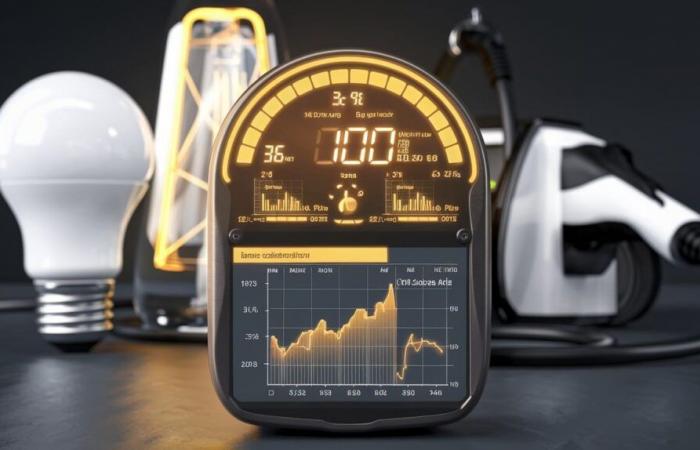The off-peak hours system for electricity is about to change in 2025. What will the new rules be and how can you take advantage of them to better manage your consumption? Discover the details of this major overhaul and its implications for your bill…
The current off-peak system for electricity, implemented decades ago, is about to get a major overhaul. According to a source close to the matter, this reform, planned for 2025, aims to better adapt prices to new consumption patterns and to encourage more responsible use of energy. What will be the main developments and how can you take advantage of them to optimize your bill? Shedding light on the challenges of this change.
Towards a New Distribution of Off-Peak Hours
Currently, households with a peak/off-peak contract benefit from 8 hours of electricity at a reduced rate each day. But their positioning, determined by the network manager Enedis, would not always be optimal. The redesign therefore plans to better adapt them to current lifestyles and new uses.such as charging electric vehicles.
Off-peak Hours In The Afternoon In Summer
One of the main new features would be the introduction of off-peak hours during the day during the summer. Indeed, with the development of solar power, electricity production is often in surplus during the sunniest hours. Shifting part of the off-peak hours to the middle of the day would therefore make it possible to better use this renewable energy and relieve the network during morning and evening consumption peaks.
To take into account the abundance of summer photovoltaic production, stakeholders are consulted on the gradual generalization of off-peak hours in the afternoon in summer from August 2025.
The Energy Regulatory Commission (CRE)
Better Promote Flexible Uses
Beyond the hourly distribution, the objective is also to financially encourage consumers to shift certain uses to less stressful periods. This would primarily concern energy-intensive devices such as water heaters, heat pumps or electric vehicle charging stations.
To make off-peak hours more attractive, the price differential with peak hours should be accentuated. According to estimates, it would be necessary to concentrate at least 30% of its consumption during off-peak hours to really find an economic benefit.
A gradual implementation from 2025
If the reform is enacted, the new rules will come into force gradually from summer 2025. Energy suppliers will be responsible for informing their customers and offering them suitable contracts. A test phase could be carried out in certain pilot regions before generalization.
For consumers, this deadline gives time to equip themselves with programmable devices and to think about the changes in habits necessary to take full advantage of the new reduced price slots. Owners of electric vehicles or battery storage systems will be among the best placed to optimize their bill.
What Challenges For Its Implementation?
If on paper this overhaul appears relevant, its practical application raises several questions:
- Acceptance by households : will they be ready to significantly change their habits, for example by running washing machines and dishwashers during the day?
- Adaptation of meters : are current communicating models compatible with mobile time slots, particularly in summer?
- Responsiveness of suppliers : will they have the resources to quickly decline attractive offers?
The coming months will be decisive in refining the roadmap for this major project. The challenge: successfully transitioning to a more flexible and virtuous system, without penalizing the most vulnerable consumers.
A Bet on the Future
With the off-peak hours reform, our entire way of consuming electricity is set to change. The technical and sociological challenges are real, but the expected benefits are worth it: better integration of renewable energies, lower bills for those who play the game of flexibility, and a less saturated transport network.
This overhaul is part of a broader dynamic of transformation of our energy model, with consumers increasingly involved in their supply. In the medium term, the perspectives opened up by self-consumption, smart networks and decentralized storage outline an electricity landscape very different from the one we know. The new generation off-peak hours will be a first step towards this promising future, where sobriety and efficiency will go hand in hand.
It now remains to transform the experiment and convince as many people as possible of the benefit of this development. Education and support will be essential to make this reform a real collective success, serving the ecological transition and controlling our energy consumption.






